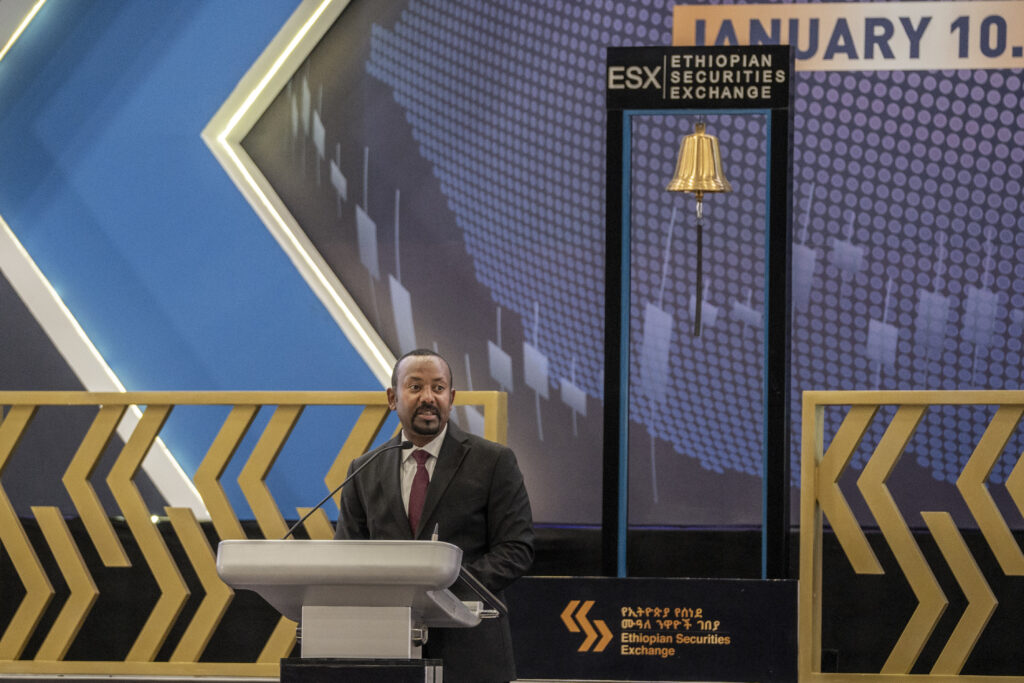Ethiopian Prime Minister Abiy Ahmed rang a Wall Street-style bell to officially launch the country’s first stock exchange in 50 years on Friday, part of efforts to liberalise the struggling economy.Only one company was listed on the exchange on opening day — Wegagen Bank — but an official said they were aiming to eventually include 90 firms and four million investors, without setting a timeline.A first sale of shares in state-owned Ethio Telecom was launched in October, but the firm was not immediately listed on the exchange as expected. “It is a new beginning,” Abiy said at the launch. “I want to call upon Ethiopians to take risks.”Since taking power in 2018, Abiy has been a vocal supporter of opening up the heavily state-controlled economy to competition and foreign investment.But internal conflicts — including a devastating civil war in the northern Tigray region between 2020 and 2022 — have led to sanctions by the United States and hampered reforms.Ethiopia has not had any form of stock exchange in 50 years, since the 1974 fall of Emperor Haile Selassie and the rise of a Marxist-inspired regime, known as the Derg, which nationalised the economy.In recent months, the authorities have adopted a series of economic reforms to attract investors. In December, parliament passed a law permitting foreign banks to open subsidiaries in Ethiopia, albeit with restrictions that international firms could own only up to 49 percent of shares.Ethiopia also announced a major reform of the exchange rate in July, allowing its currency, the birr, to float freely against the dollar.Pegging the currency to the dollar had become increasingly unsustainable.A $3.4-billion aid programme from the International Monetary Fund and a $1.5-billion financing plan from the World Bank were held back until Ethiopia accepted the reform.Africa’s second most populous country, with some 120 million people, Ethiopia recorded high rates of economic growth -– often exceeding 10 percent annually –- between 2004 and 2019.But the economy has been hit by internal conflict and the effects of the Covid-19 pandemic and war in Ukraine.Growth slowed to an average of 5.9 percent between 2020 and 2023, while inflation soared from 20.4 to 30.2 percent over the same period, according to the World Bank.
